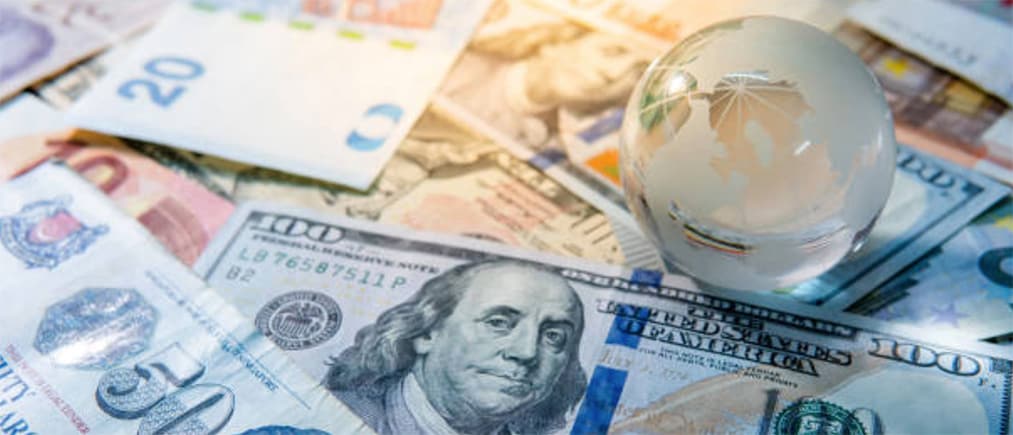For businesses with a footprint overseas, whether it’s buying from or selling to other countries, sending money abroad or employing staff, fluctuations in exchange rates can cause big peaks or troughs in profit. “Volatility in currency values are problematic and can reduce profit margins,” says Andrew Goodacre, Chief Executive Officer of the British Independent Retailers Association.
In fact, nearly half of UK small businesses lose money due to foreign currency volatility and 15% lose money on foreign exchange (FX) every month, according to American Express research.
In times of economic uncertainty such as Brexit, FX fluctuations are often more potent. This means the cost of doing business abroad can change. For example, the Brexit deal announced 24 December strengthened the Pound (GBP) against many currencies including the USD, YEN, AUD and EUR. And it’s forecast to continue strengthening.
For importers of goods or services in these currencies, this is good news, enabling your money to stretch further. But if you sell your products overseas, it might increase their cost to your consumers or clients.
Thankfully there’s lots you can do to protect your business against volatile exchange rates. Here’s a look at some smart risk management strategies and FX hedging measures you can use to navigate your business through the post-Brexit period and beyond.
Risk management strategies to reduce FX exposure
1. Forwards contracts
The Brexit deal has strengthened the Pound relative to the Euro. But the Pound is forecast to decrease in value by the end of the year. If you import goods and services in Euros consider locking in the current strength by buying a forwards contract in EUR. This is an effective FX hedging tool, since it enables you to buy or sell a fixed amount of currency at an agreed rate for up to two years.
You can think of a forwards contract as a ‘buy now, pay later’ deal where you make a small deposit to secure a fixed exchange rate at a pre-agreed date in the future, giving you more clarity to manage your budget and cashflow. The disadvantage is that they don’t allow you to benefit from more favourable exchange rates if your home currency strengthens.
2. Currency swaps
While the Pound is forecast to strengthen against the US Dollar throughout 2021, the exchange rate is also likely to be volatile. This is where a swap might be beneficial. A currency swap is similar to a forwards contract, except it typically involves multiple payments.
For example, a forward contract is a single payment made on a pre-agreed date and at a pre-agreed exchange rate. Conversely, a swap is many of these payments over time. You can think of a swap as a series of forwards. This enables you to exchange at different rates over time to spread your risk if volatility is expected. The disadvantage of a swap is that you are likely to pay a fee.
3. Pay your invoices quickly
One way to lower your exposure to FX risk is to pay your invoices in foreign currencies quickly, provided cash flow permits. By sending payments straight away, you’re shielding your business from any future movements in exchange rates.
As an example, in the four months after the Brexit referendum, the Pound dropped 16% against the Euro. And for the past few years the Pound has risen and fallen between 1.10 Euro and 1.20 Euro. From 18 February 2020 to 18 March 2020, the Pound fell nearly 12%. This means that if your home currency is Pounds and you were invoiced for 20,000 Euro of goods at the start of this period but didn’t send the payment until the end, you would have paid 2,250 Pounds more.
You should only consider taking this step only if it makes sense for your cash flow.
And, keep in mind that this can also work against you, too, if the Pound had become stronger.
4. Ask your suppliers for a discount
If you currently have foreign suppliers that invoice in Pounds, ask them whether they would consider switching to their local currency and provide a discount.
5. Set-up multi-currency accounts
If you regularly receive payments in Euros or other currencies it might be worth setting up bank accounts in those same currencies. That way you can hold that currency for use in a future date, either exchanging when the rate is more favourable or when you want to make a payment in that same currency. For example, as the UK signs trade deals with countries such as the US these markets might become attractive business opportunities. If this happens, a multi currency account will allow you to receive money in a foreign currency and exchange it into GBP when the rates become favourable. However, setting up multi-currency accounts can incur charges.
6. Order ahead
Time your orders carefully and if you have the cash reserves to commit to extra stock, consider ordering ahead when the Pound strengthens. This is likely to happen around the time of a trade deal. “If the currency is strong and in favour of the importer, a small business may place larger orders, especially if they believe the exchange rate may deteriorate,” says Goodacre.
Finally, consider setting up news alerts to monitor the progress of trade deals. The UK is expected to sign deals with the US, Australia and New Zealand this year. “Our ability to strike meaningful trade deals with other countries, especially the USA, may well give a boost to the strength of the Pound over the Euro,” says Goodacre.



